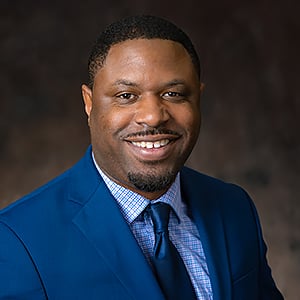Our Master’s in Special Education at a Glance:
Flexible Coursework
Elevate your expertise with full- and part-time in-person and online tracks to fit your unique schedule.
1–2 Year Completion
Earn your degree in one year as a full-time student or two years on a part-time schedule.
Esteemed Partnerships
Collaborate with renowned organizations like Lab School of Washington and the McLean School while building long-lasting connections.
No Experience Required
Prepare for DC, Maryland, and Virginia licensure with reciprocity in over 40 states without needing prior teaching experience.
Learning Experience
2 Hours
Synchronous
Live online or in-person classes with students in your cohort attended according to a specific schedule.
+
1-2 Hours
Asynchronous
Self-paced discussions and other course-related work.
+
5-7 Hours
Assignments
Homework, projects, research, etc.
=
8-11 Hours
Total Weekly Hours
Hours are estimates and subject to change per term course.

Career Outcomes
Our graduates find employment in various settings within the special education field, including public, private, and independent schools, clinics, treatment centers, government agencies, and research institutions. Additionally, many pursue doctoral programs or take on leadership roles in schools, organizations, and government.
Recent alumni currently are employed at:
- AIM Institute for Learning & Research
- KIPP DC
- Montgomery County Public Schools
- National Child Research Center
- NY City Department of Education
- The Children’s Guild Alliance
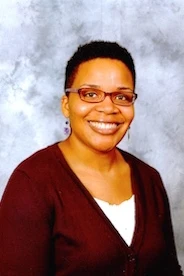
“AU’s special education program was the correct path for my professional growth, as it provides instruction from extremely knowledgeable professors with vast experiences. Currently, I’m a special education teacher and project coordinator for a local high school, and I’m pleased to continue to learn on a daily basis what makes a great classroom work.”
Amber Owens,
Alumna
Lab School of Washington Fellowship
The Lab School of Washington Fellows Program offers select candidates from the MA in Special Education: Learning Disabilities at American University a 12-month residency with students who have language-based learning differences. This evidence-based program helps candidates support students facing challenges like dyslexia, ADHD, and more in reading, writing, and mathematics.
Fellows receive intensive training, classroom management strategies, and mentorship from master teachers and university faculty. Coursework includes topics on learning disabilities, language acquisition, diagnostic techniques, and neuropsychology. This apprenticeship model effectively prepares fellows for careers as teachers, learning specialists, tutors, or for further study in psychology and special education.
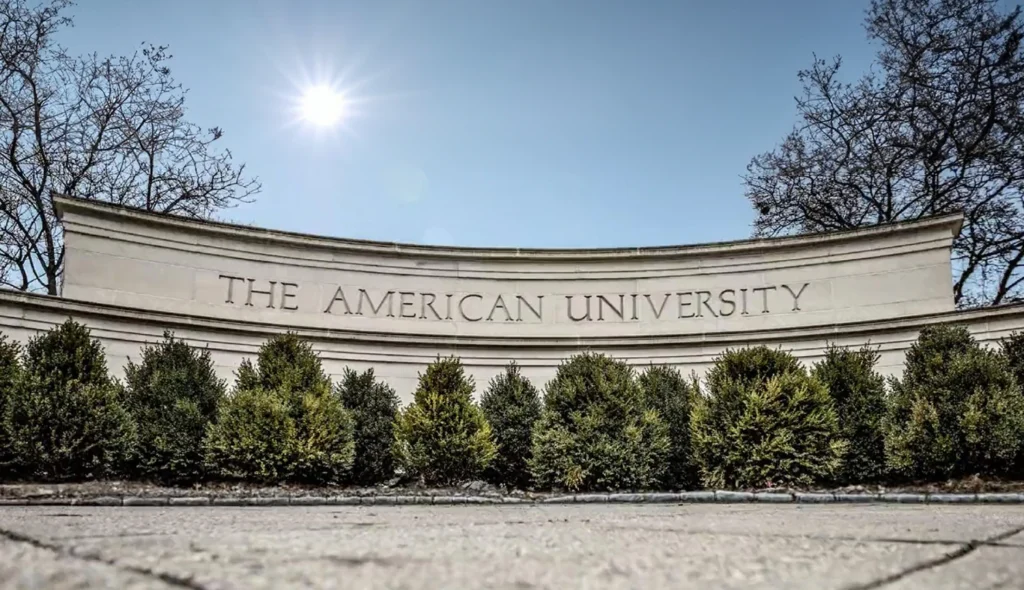
Degree Requirements
Full-time students
Full-time students can complete the program in as little as one year (fall, spring, and summer). Full-time students typically take three to four courses (12–15 credits) per semester, plus the internship requirement.
Part-time students
Part-time students typically take six credits (two courses) per semester to complete the program in two years (or five semesters).
Student Teaching Placement
Students who need student teaching credits must complete a year-long placement at a partner school. Those finishing the program in one year typically begin their student teaching placement in their first semester. Throughout the student teaching placement year, you will be in a classroom from 7:45 a.m. to 12:30 p.m. Students may work part-time jobs in the afternoons, between their student teaching placement and classes, during the academic year from September to June.
30 credit hours of approved graduate work
Capstone experience
Specializations: Licensure or Non-Licensure
Licensure Specialization:
- Completion of Praxis Core or equivalency exam set by the District of Columbia, preferably by the end of the first semester in the program; consult program office for exam information
- Completion of Praxis Content Knowledge Exam before graduation
Non-Licensure Specialization:
Independent studies and additional coursework can be completed to meet requirements for an MAT degree but will not prepare students for licensure.
Coursework
Note: An elective approved by the student’s advisor may be used as a substitute for EDU-620 Theories of Educational Psychology and Human Development (3).
Complete 3 credit hours from the following:
Complete 3 credit hours from one of the following options:
Licensure Specialization
Non-Licensure Specialization
Sample Programs of Study
Students can complete their program at a full-time pace in three semesters or at a part-time pace in five semesters. To provide a clearer picture of the courses offered each semester, we have outlined sample programs of study based on the pace you choose.
One Year / Three Semesters
Summer
- EDU 606: Theories & Methods in Diagnostic and Prescriptive Math
- EDU 607: Learning and the Brain
- EDU 620: Theories of Educational Psychology and Human Development
- EDU 643: Foundations of Special Education for Exceptional Children
*This summer session can be taken as the first semester with a summer start or as the third semester with a fall start.
Fall
- EDU 645: Learning Disabilities I
- EDU 654: Methods of Managing Pupils with Behavior Disorders
- EDU 671: Foundations of Reading: Diagnosis and Remediation
- EDU 792: In Service Training Project (1 credit)
Spring
- EDU 605: Psycho-educational Assessment for Learning Disabilities
- EDU 644: Language Development and Remediation
- EDU 646: Learning Disabilities II
- EDU 792: In Service Training Project (1 credit)
Two Years / Five Semesters
Fall
- EDU 654: Methods of Managing Pupils with Behavior Disorders
- EDU 665: Overview of All Exceptionalities: The Arts in Special Education
Spring
- EDU 605: Psycho-educational Assessment for Learning Disabilities
- EDU 644: Language Development and Remediation
Summer
- EDU 606: Theories & Methods in Diagnostic and Prescriptive Math
- EDU 607: Learning and the Brain
- EDU 620: Theories of Educational Psychology and Human Development
Fall
- EDU 645: Learning Disabilities I
- EDU 671: Foundations of Reading: Diagnosis and Remediation
- EDU 792: In Service Training Project (1 credit)
Spring
- EDU 646: Learning Disabilities II
- EDU 792: In Service Training Project (1 credit)
Summer
EDU 606: Theories & Methods in Diagnostic and Prescriptive Math
EDU 607: Learning and the Brain
EDU 620: Theories of Educational Psychology and Human Development
EDU 643: Foundations of Special Education for Exceptional Children
*This summer session can be taken as the first semester with a summer start or as the third semester with a fall start.
Fall
EDU 645: Learning Disabilities I
EDU 654: Methods of Managing Pupils with Behavior Disorders
EDU 671: Foundations of Reading: Diagnosis and Remediation
EDU 792: In Service Training Project (1 credit)
Spring
EDU 605: Psycho-educational Assessment for Learning Disabilities
EDU 644: Language Development and Remediation
EDU 646: Learning Disabilities II
EDU 792: In Service Training Project (1 credit)
Fall
EDU 654: Methods of Managing Pupils with Behavior Disorders
EDU 665: Overview of All Exceptionalities: The Arts in Special Education
Spring
EDU 605: Psycho-educational Assessment for Learning Disabilities
EDU 644: Language Development and Remediation
Summer
EDU 606: Theories & Methods in Diagnostic and Prescriptive Math
EDU 607: Learning and the Brain
EDU 620: Theories of Educational Psychology and Human Development
Fall
EDU 645: Learning Disabilities I
EDU 671: Foundations of Reading: Diagnosis and Remediation
EDU 792: In Service Training Project (1 credit)
Spring
EDU 646: Learning Disabilities II
EDU 792: In Service Training Project (1 credit)
Key Dates & Deadlines
Entrance semesters are Fall and Summer. Applications require a $55 application fee.
FAQs
Many graduates work in various settings related to special education including public schools, private schools, independent schools, clinics, treatment centers, government, and research institutions. Graduates also go on to doctoral programs and leadership positions in government, education, and organizational settings. Hear from some of our alumni.
Full-time students can complete the program in just one year (fall, spring, and summer). Full-time students typically take three to four courses per semester, plus the internship requirement. This means 12–15 credits per semester are completed on a full-time schedule.
Part-time students typically take 6 credits (two courses) per semester to complete the program in two years (or five semesters).
Typically, graduate students are eligible for financial aid if enrolled at least part time. Part-time status is defined as 5 credits for fall, 5 credits for spring, and 2 credits in the summer semester.
Full-time work may be accommodated depending on the circumstances of the student. All MAT: SELD courses are offered from 5:30–8:00 p.m. or 7:30–9:20 p.m. E.T.
Students who require student teaching credits complete a year-long placement at a partner school site. Students completing the program in one year typically start their student teaching placement during their first semester.
During the year that your student teaching placement occurs, you attend classes from 7:45 a.m. to 12:30 p.m. Students may work part-time in the afternoon between student teaching placement and class.
(September–June academic year of placement)
Praxis CORE (or equivalencies) is not required for admission.
While we strongly recommend completion by the end of the first semester, all admitted students must take Praxis CORE (or equivalencies) by graduation. The DC teacher licensing agency sets passing scores as: Reading 156, Writing 162, and Math 150. To submit Praxis, use school code 5007 (no department code). Praxis scores can take up to six weeks to arrive after the test date. See the Educator Testing Flyer or visit the OSSE website for additional test types.
Still have questions? Send us an email or call 202-885-3731.
Combined Bachelor’s Degree and Master of Arts in Teaching Special Education: Learning Disabilities
American University allows students to earn both undergraduate and graduate degrees through its combined bachelor’s/master’s programs.
- Undergraduate students may complete up to nine credits of graduate coursework. These must be applied to the requirements for both undergraduate and graduate degree programs.
- The department overseeing the corresponding graduate program will determine if the completed undergraduate courses satisfy master’s degree requirements.
- Bachelor’s/master’s students must complete at least 18 in-residence graduate-level credit hours after earning their bachelor’s degrees and maintain continuous, sequential enrollment in the two programs.
This program enables highly qualified students to earn both a BA or a BS in a related discipline and the MAT Special Education: Learning Disabilities.
Students should apply to the master’s program in the second semester of their junior year. Applicants must have a grade point average of 3.00 or higher in major and minor courses and must satisfactorily complete the following:
- EDU-654 Methods of Managing Students with Behavior Disorders (3)
- EDU-643 Foundations of Special Education for Exceptional Children (3) or EDU-665 Overview of All Exceptionalities: The Arts in Special Education (3)
- All requirements for the BA or BS in the student’s major
- Undergraduate students may apply up to 9 credit hours from approved graduate-level courses, including EDU-654 and EDU-643 or EDU-665 to satisfy the requirements of both degrees.
- All requirements for the MAT Special Education: Learning Disabilities degree, including a minimum of 18 credit hours, are completed in residence in graduate status after the undergraduate degree has been awarded. Students must finish the master’s degree requirements within three years from enrollment in the master’s program.

MAT: SELD Faculty Members
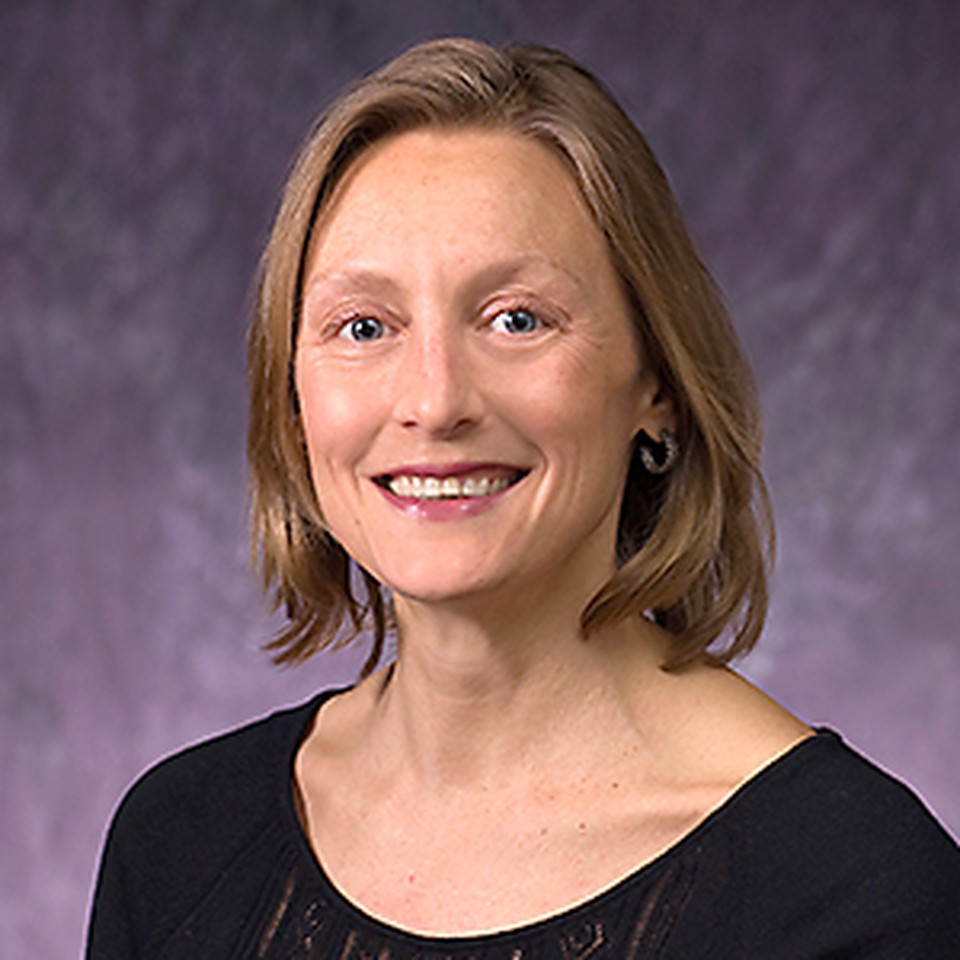
Alida Anderson
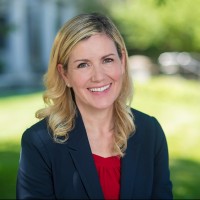
Sarah Irvine Belson
